Indifference
Stats
Starring: Charles “Buddy” Rogers, Richard Bennett, Peggy Shannon, Charlie Ruggles, Frances Dee, Frances Starr, Allen Vincent and Mary Carlisle
Directed by: Frank Tuttle
Released by: Paramount
Runtime: 74 minutes
Release date: January 9th, 1932
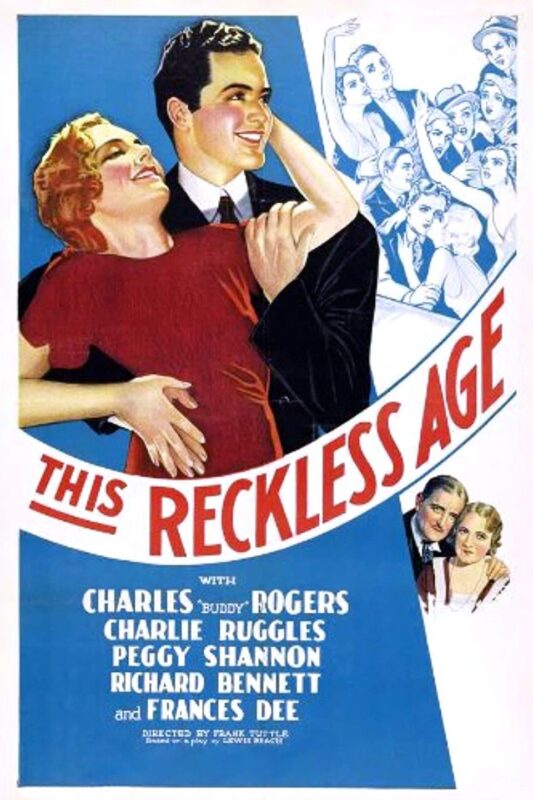
Availability
Released by Paramount in 1932, that puts ownership current to Universal/Comcast. Unfortunately this has had no physical media release and currently does not appear on any streaming platforms.
The only ways to access it is via bootleg sites or grey market sellers.
Proof That It’s Pre-Code
- “It’s not about the underwear, it’s about the spirit of the thing.”
- We are treated to a brief but excruciating sequence where a college student named Stepladder grabs a lampshade and puts some pitted olives in his mouth to dress up like ‘a Chinaman’ and frighten a few of the elder squares.
- Some of the reckless youths commit grand theft auto, but a fun, playful kind of grand theft auto.
- “I must see Mr. Whitney.” “Mr. Whitney never receives in bed!”
- Just saying, much is made of the old couple in this movie being out of touch but at least they share a bed.
- The age gap discourse on this one would be wild.
This Reckless Age: Wild At Home
“A man with a grownup boy and a grownup girl needs every cent he can get!”
23 years. For those who have seen This Reckless Age can already probably piece together what this number is referring to. For those who haven’t (and probably shouldn’t bother), that’s the age gap between Charlie Ruggles (born 1886) and Frances Dee (1909). Let’s circle back to this in a moment.
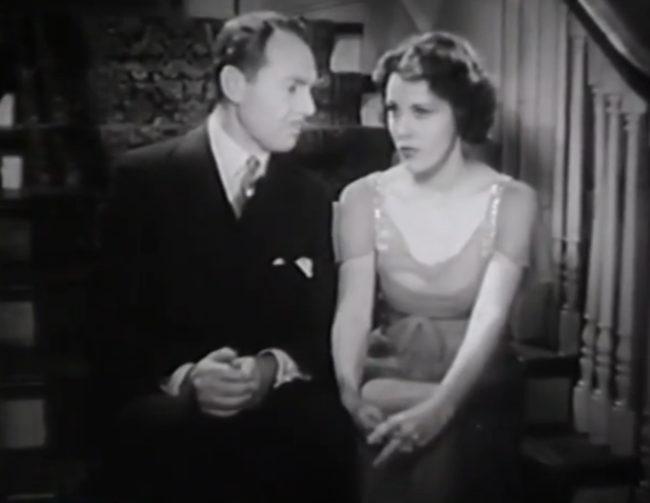
Set during the cold Christmas and New Years of 1921, This Reckless Age regards a pair of empty nesters, Donald (Richard Bennett) and Eunice (Frances Starr) as they await the return of their two college-aged children, Brad (Buddy Rogers) and Lois (Frances Dee), for the holidays. Their reunion is tempered as the kids have lives of their own that occupies them, as Brad plans to drop out of college and marry Mary (Peggy Shannon) while Lois’ frivolous group of friends only helps her realize her bone-deep crush on her godfather and family friend Goliath (Charlie Ruggles).
There’s a plot happening alongside this involving fraudulent mining contracts (not quite a holiday movie staple I suppose) that leads to a sudden need for the family to scrape together $10,000 before Donald is thrown in prison. This is the impetus for Brad and Lois to finally shed their frivolous lifestyles and save the family. As dour as This Reckless Age often is, it at least doesn’t end with dad starving in a cement prison cell, even if the film opts to insert a ridiculous con job to slide their way out of it.
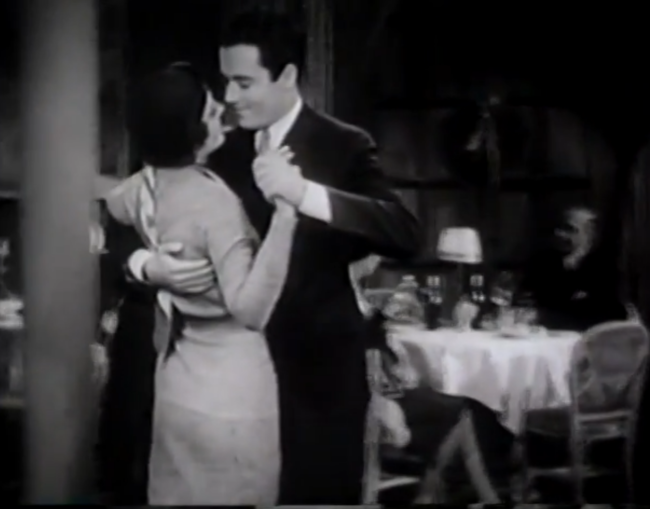
Based on a 1924 play, several contemporary reviews feel like the film’s take on misspent youth feels old fashioned a decade later. Of the whole cast, Dee’s bubbling sense of mischief is the only area where the film feels at all modern or alive. The rest of the film, especially the lengthy sections of Donald and Eunice coming to grips with their children’s adulthood and lack of maturity, trudge along, like scenes from a downbeat prequel to Make Way for Tomorrow. And I’m not begrudging the movie for touching on this kind of personal disappointment, but it only makes the film’s tonal clash more pronounced. This Reckless Age tries to have its cake and eat it, too.
For example, view the undercooked relationship between Brad and Mary. Brad has decided to leave college 18 months early so that he and Mary can get married. Mary is the daughter of the owner of the campus hangout and basically perfect; she helps Eunice with the food and can read Brad’s insecurities carefully but not without ego. Brad, however, apparently just cares about getting laid and can’t wait to get married, such to the point that he refuses to tell his parents about the marriage beforehand. Buddy Rogers, not a strong actor, can’t find a backbone to the character, and the only real characterization we get is that this man is just pretty horny and that’s that. That is until Act 3 where Brad must know and understand his father’s life work in ways his father has never done as well as orchestrate a tricky subterfuge in only a handful of hours– and it makes the character and any growth one of convenience than natural occurrence.
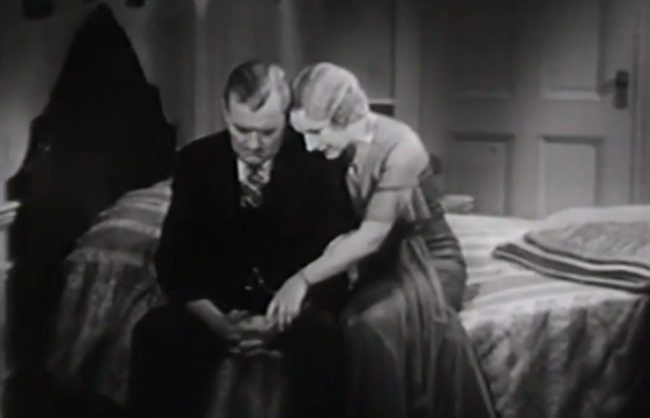
Contrast this with Lois’ journey from smoking, smirking flapper to bubbling bride. Lois has been “trying to have an effect on her godfather” and complains that he’s had it out for her since her baptism; Goliath, played by Charlie Ruggles, is a meek elder who lives in a big mansion with a pair of ridiculous long underwear. This arc, built off of some friction between youth and age that at least plays into the film’s themes, works more or less. Her wedding to Goliath at picture’s end, as icky as that age gap is, represents that ultimate bridge between future and past, the end to both fickleness and loneliness.
But what good does that do Donald and Eunice? I guess they’ll be awash in grandchildren soon. Maybe back then that’s just all the promise you needed.
This Reckless Age has some fun in pointing out the arrogance of youth while carefully documenting long shadows looming on empty walls. It’s not a particularly cheery document, simply a feeble attempt to tug heartstrings and another Depression-era attempt to conjure a happy ending from absolutely nothing.
More Images
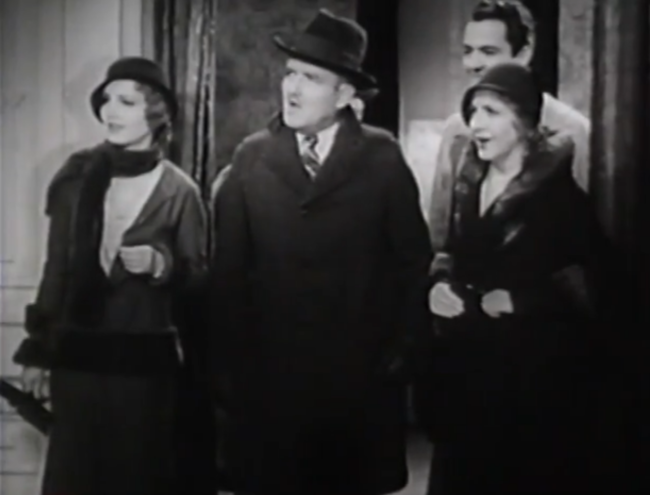
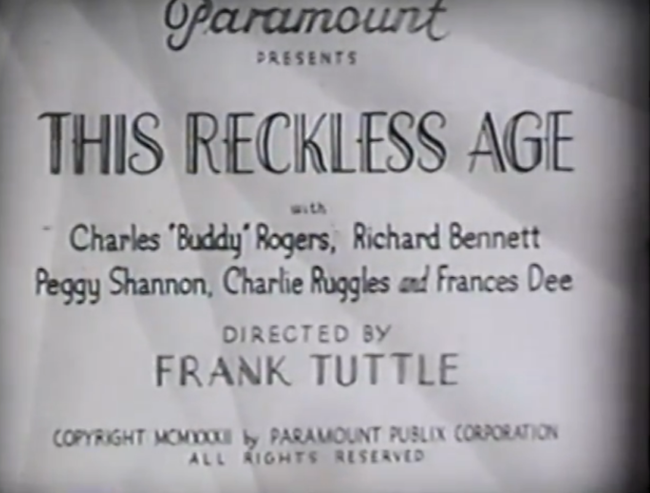
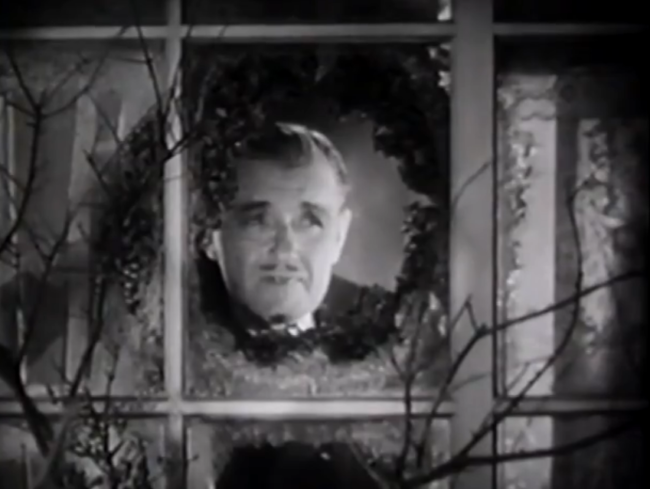
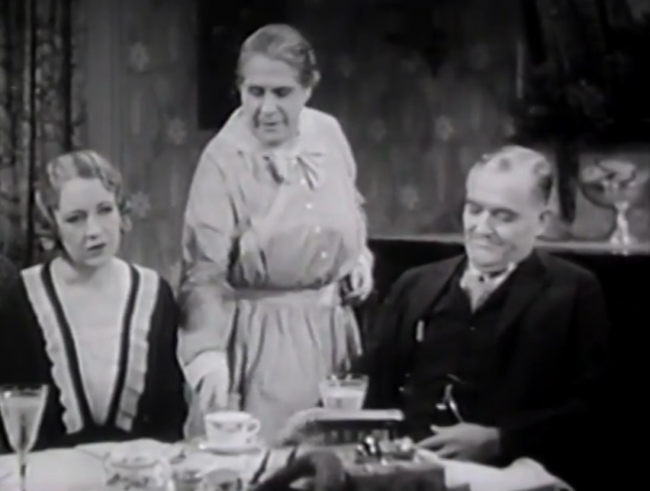
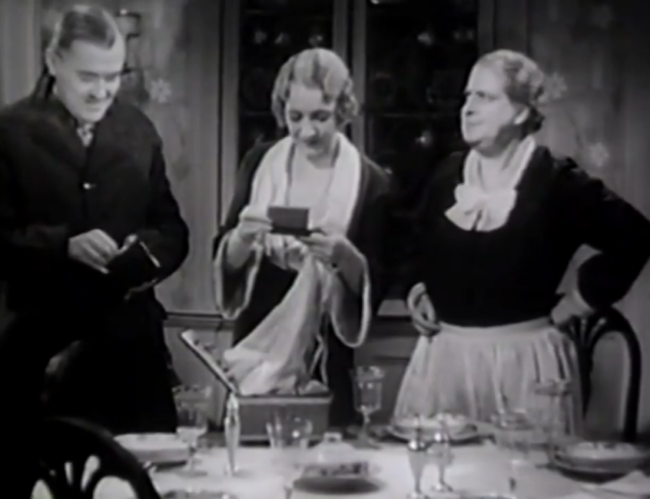
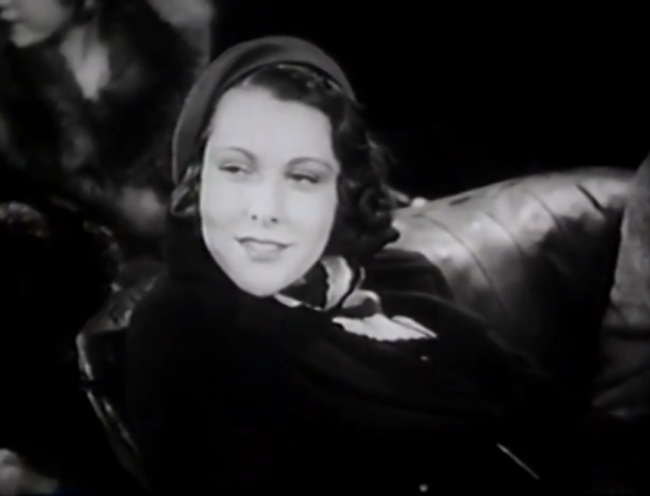
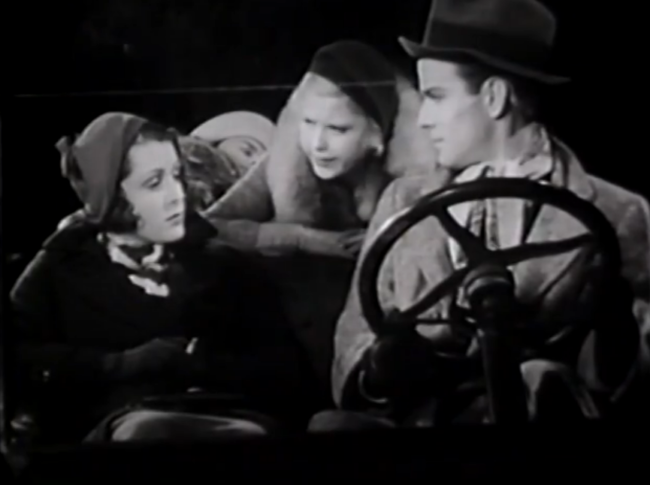
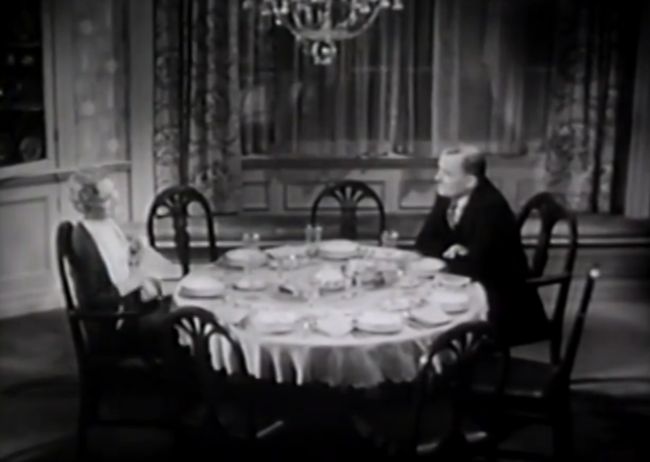
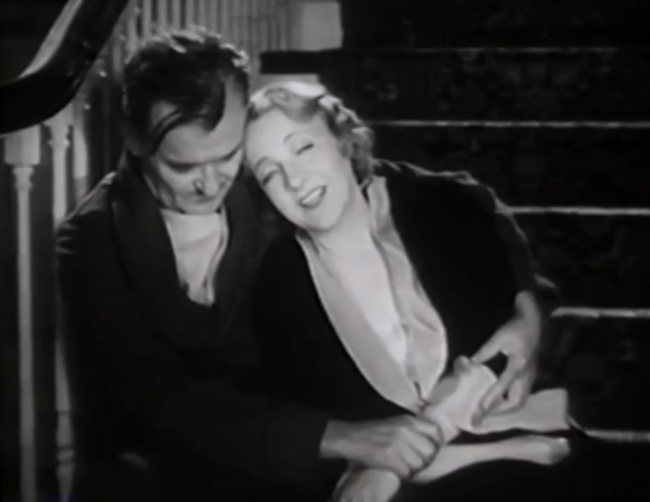
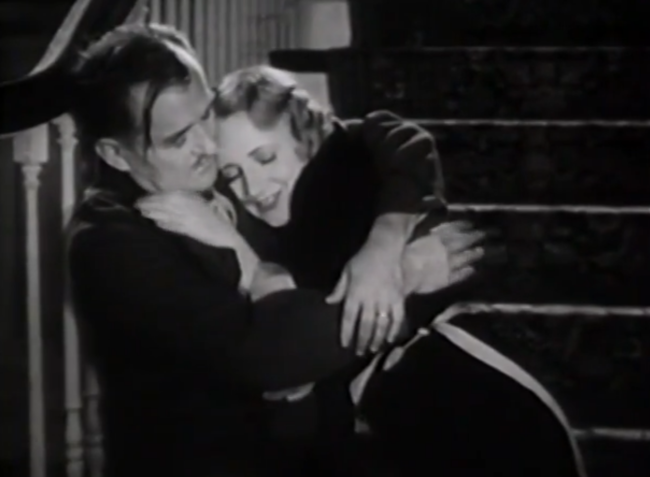
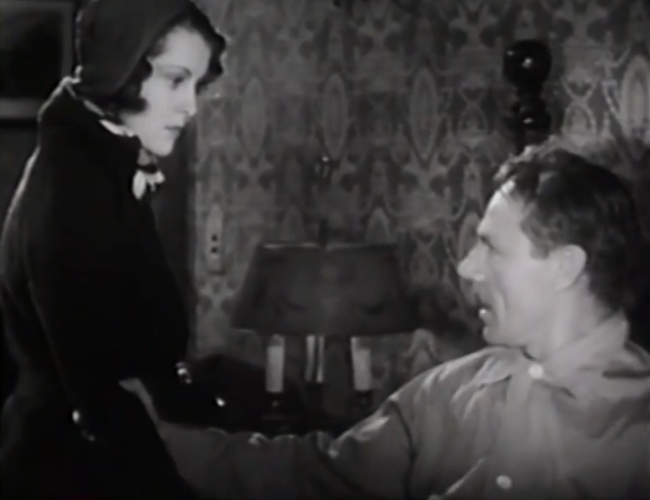
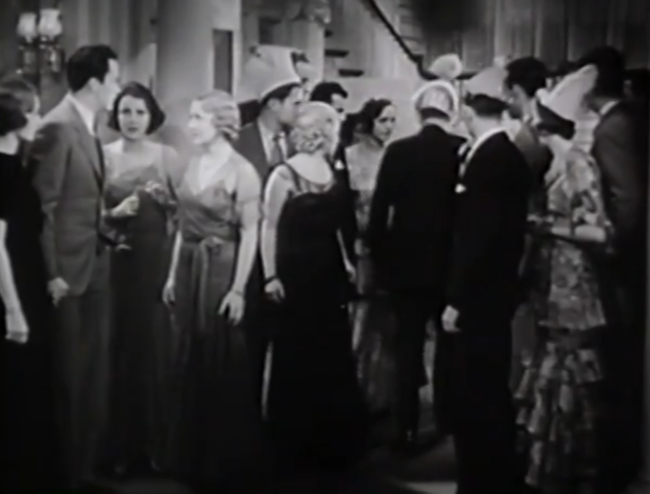
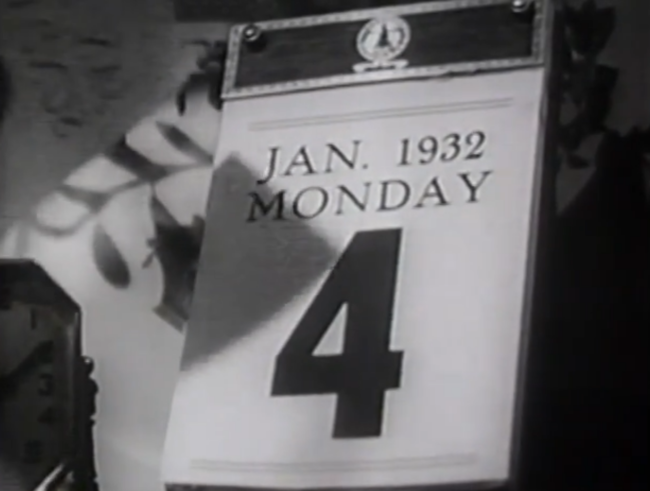
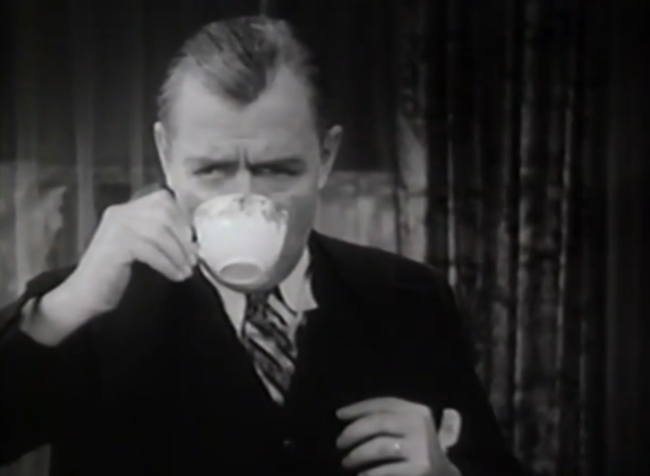
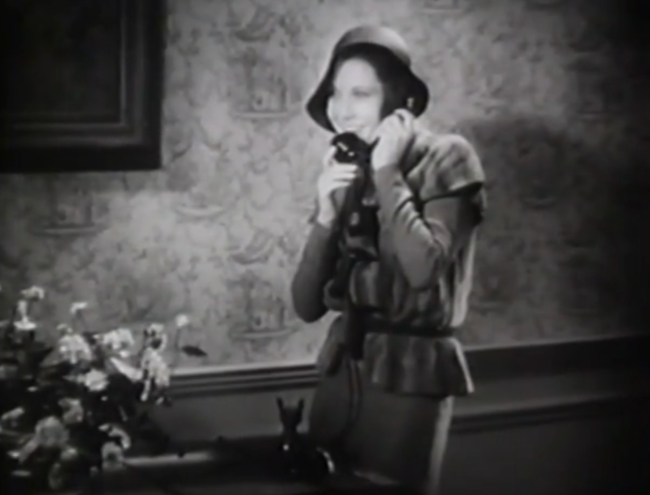
Trivia, Miscellany & Links
- Based on the play The Goose Hangs High by Lewis Beach which ran on Broadway for six months in 1924. It was made into a film in 1925 under the same title with a young Constance Bennett playing Lois. The 1925 film is currently considered lost. (And for those of you playing along at home, the Richard Bennett who plays the father in This Reckless Age is Constance Bennett’s real-life dad.)
- Picture Play Magazine featured some stills trying to talk up Buddy Rogers’ acting chops:
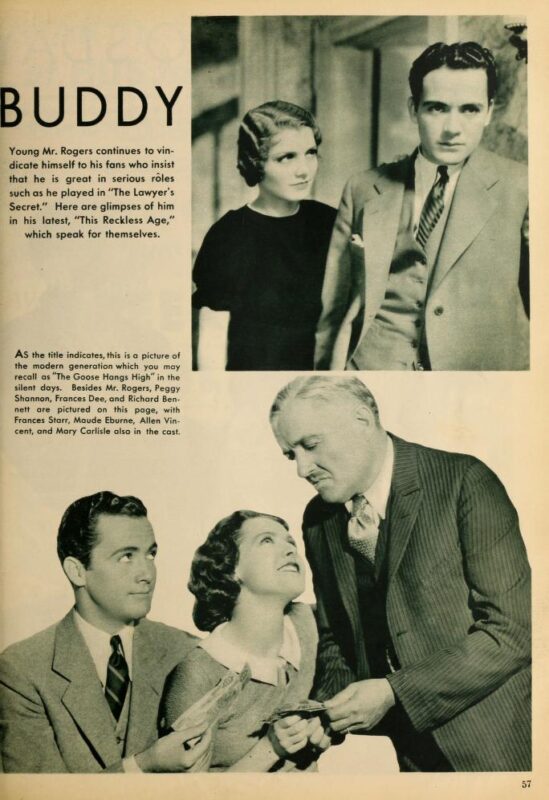
- Mordaunt Hall in the New York Times compliments much of the acting but doesn’t find the movie to be very compelling.
- Some more contemporaneous reviews:
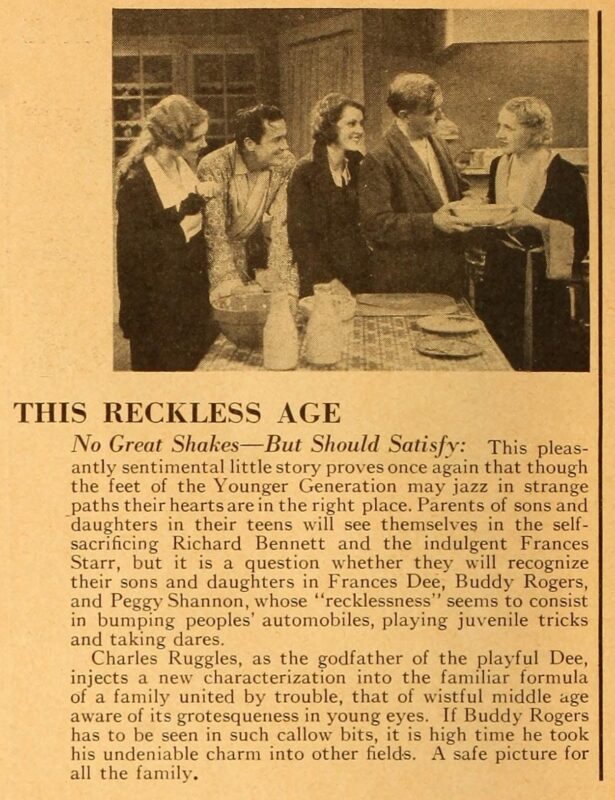
- One item I couldn’t decide if it belonged in the ‘Proof That It’s Pre-Code’ section is a brief scene where an irate neighbor yells at Lois and her pals for being noisy at 5 AM. After the neighbor closes his window, he mouths something that the audience can’t hear, something that lip readers better than me will have to decipher; my best guess is “you sons of a bitches” but I’m not certain enough to assert it above. That being said, the man shouting from the window is none other than the film’s director, Frank Tuttle, in a cameo.
- Other links:
More Pre-Code to Explore
What is Pre-Code?
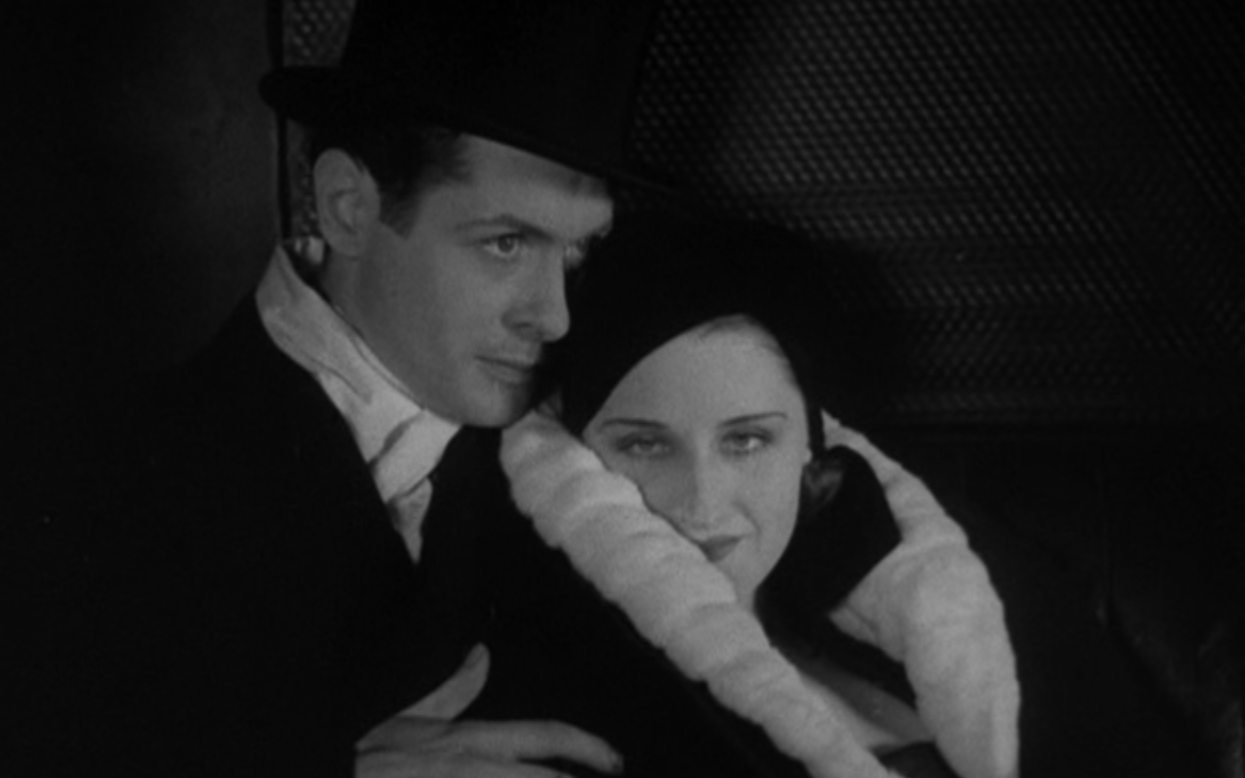
Click to learn more about pre-Code Hollywood, 1930-4, when movies were sexy, smart and sophisticated.
Index of Film Reviews
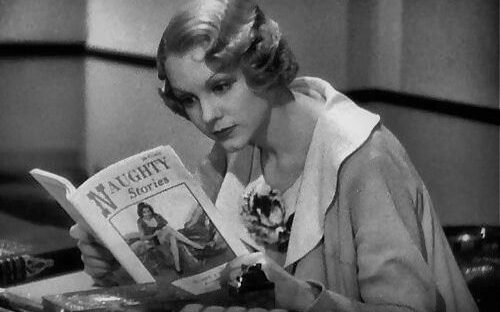
Browse all of the movie reviews on the site as well as schedules and pages that detail the world of pre-Code.
Explore the Pre-Code Era
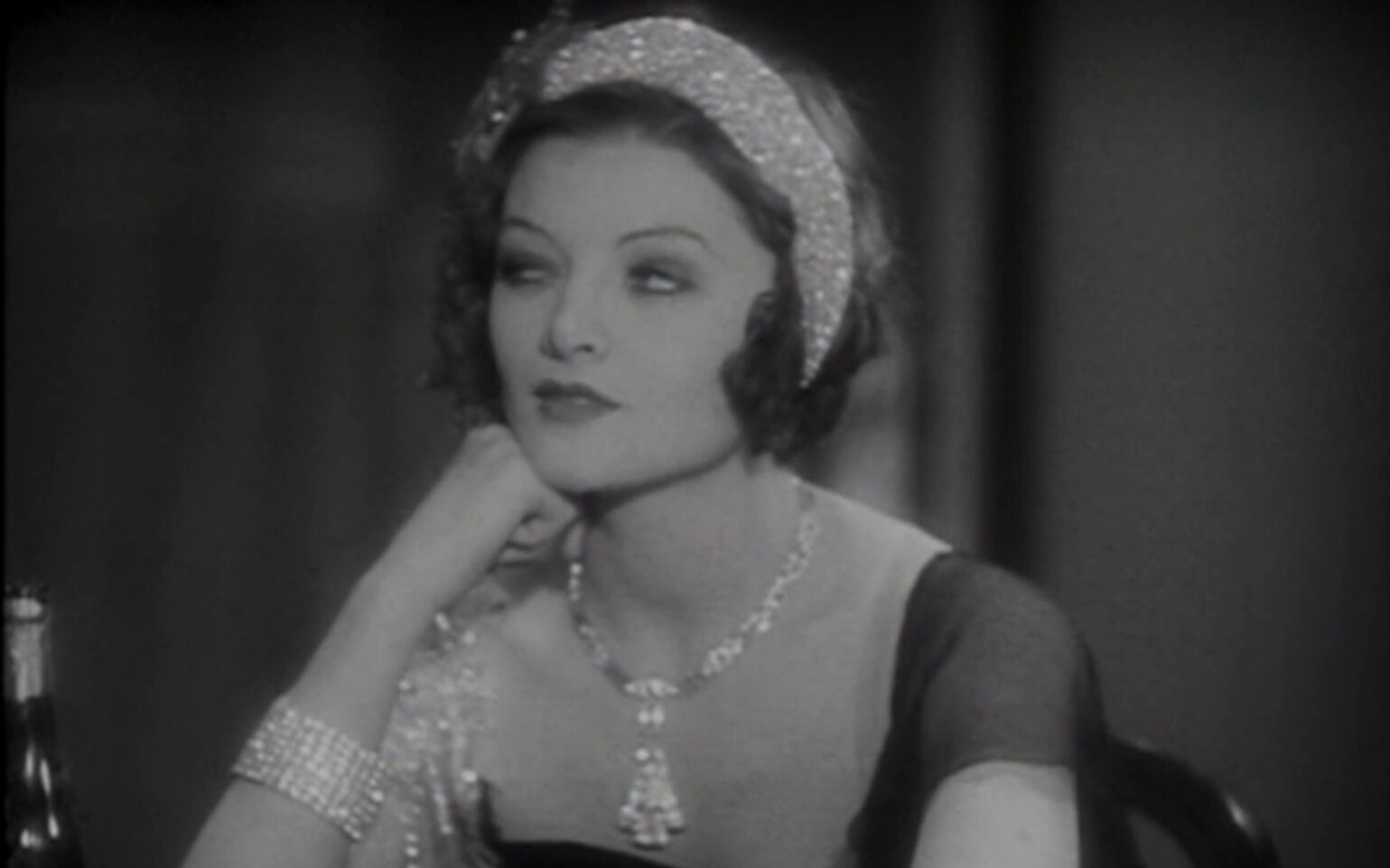
Dig through the pre-Code era through its highlights, its biggest hits, its essential films, and more.
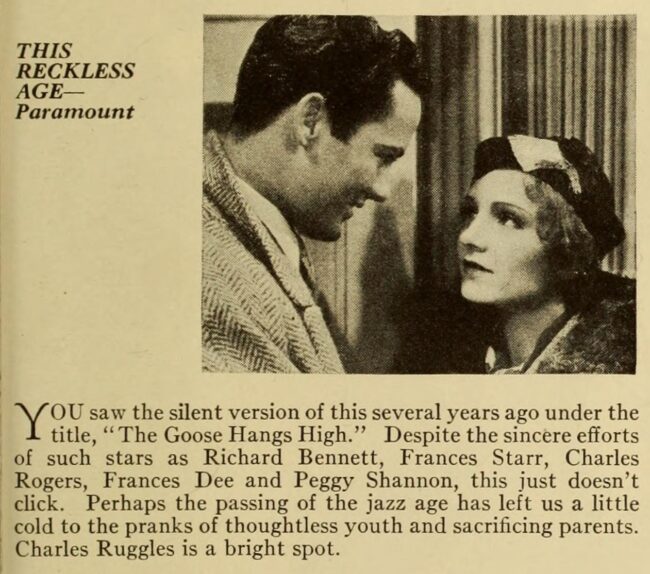
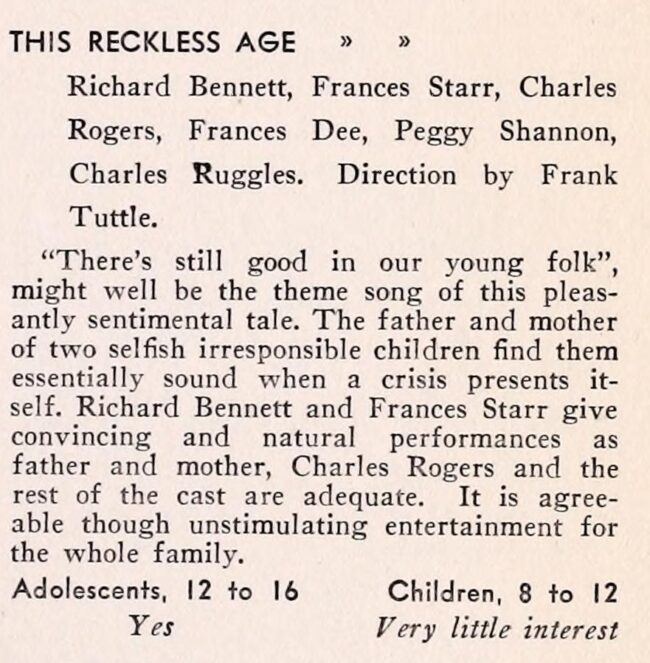

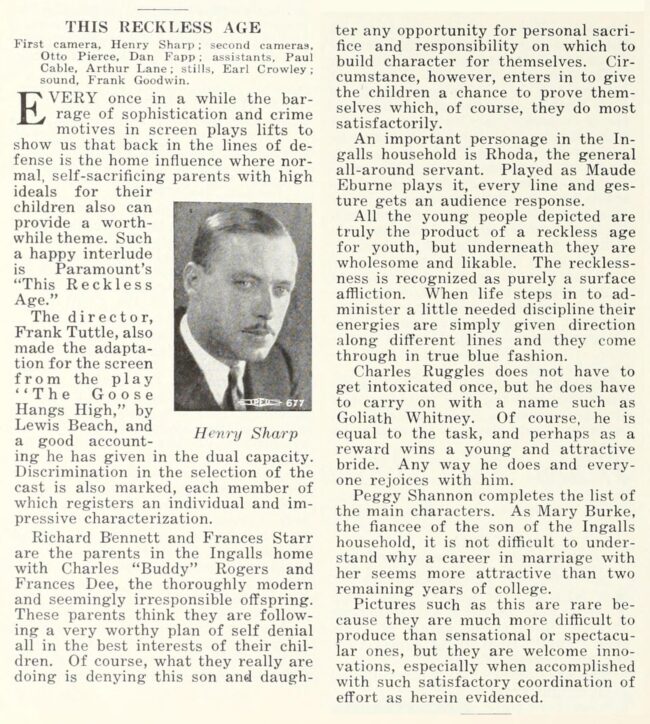
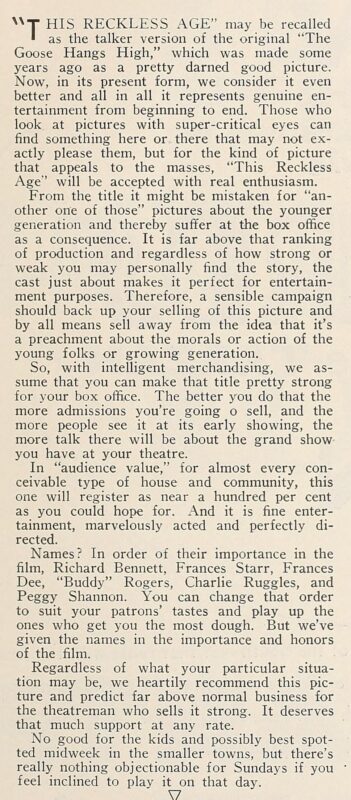



2 Comments
Karen Hannsberry · March 8, 2024 at 6:42 pm
I’m so glad to see you back and blogging again, Danny. I’ve missed you and thought of you often. And I greatly enjoyed reading your take on this film, even if you have convinced me to never try to see it.
— Karen
Ben · March 9, 2024 at 4:15 am
Glad to see you back Danny. I figured you had burned out on the Pre-Code grind. Happy I was wrong. I haven’t seen this yet, so on the watchlist it goes (thank you ok.ru).
Comments are closed.